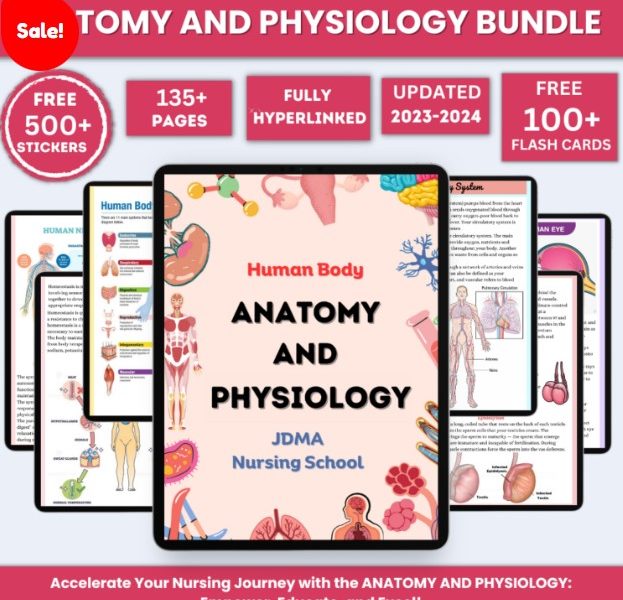In the ever-evolving landscape of the medical field, education and specialization remain the cornerstones of success. Among the myriad of courses available, an Anatomy and Physiology course stands out as a foundational pillar that can propel your medical career to new heights. This course not only deepens your understanding of the human body but also equips you with critical skills that are indispensable in various medical professions. Here, we explore how an Anatomy and Physiology course can serve as a stepping stone to a fulfilling and impactful career in medicine.
The Core of Medical Knowledge
Anatomy and Physiology form the bedrock of medical science. Anatomy focuses on the structure of the human body, from the macroscopic level of organs to the microscopic level of cells. Physiology, on the other hand, delves into the functions and mechanisms of these structures. Together, they provide a comprehensive understanding of how the body operates, which is essential for diagnosing and treating illnesses.
For medical professionals, this foundational knowledge is critical. Whether you are a nurse, a physician, a physiotherapist, or a radiologist, understanding the human body’s intricate systems enhances your ability to provide accurate diagnoses and effective treatments. Moreover, this knowledge serves as a prerequisite for more advanced studies in specialized medical fields such as cardiology, neurology, and orthopedics.
Enhancing Diagnostic Skills
One of the most significant ways an Anatomy and Physiology course can advance your medical career is by honing your diagnostic abilities. A deep understanding of the body’s structure and functions allows healthcare professionals to identify abnormalities and correlate symptoms to potential diseases or injuries.
For example, a nurse with a solid grasp of cardiovascular anatomy can quickly identify signs of a heart attack, such as chest pain radiating to the arm. Similarly, a physical therapist with a thorough understanding of musculoskeletal physiology can design more effective rehabilitation programs for patients recovering from injuries. These skills not only improve patient outcomes but also set you apart as a competent and reliable professional in your field.
Building a Strong Foundation for Specialized Fields
Specialization is becoming increasingly important in the medical field. Whether you aspire to become a surgeon, a pharmacist, or a medical researcher, an Anatomy and Physiology course serves as a gateway to advanced education and training.
Take, for instance, the field of surgery. A surgeon must have an in-depth knowledge of anatomical structures to perform precise and safe operations. Understanding the relationships between different organs, tissues, and blood vessels is critical for successful surgical outcomes. Similarly, a pharmacist must understand physiological processes to comprehend how medications interact with the body, ensuring safe and effective drug administration.
For those interested in medical research, Anatomy and Physiology provide the necessary background to explore new treatments and technologies. Researchers rely on this knowledge to develop innovations that can revolutionize healthcare, from creating artificial organs to developing targeted therapies for chronic diseases.
Strengthening Communication Skills
Effective communication is a vital skill for any medical professional. An Anatomy and Physiology course enhances your ability to communicate complex medical information in a clear and concise manner. Whether you are explaining a diagnosis to a patient, collaborating with colleagues, or educating medical students, a strong grasp of anatomical and physiological concepts allows you to convey information accurately and confidently.
Moreover, this course equips you with the technical vocabulary required to navigate the medical field. Being fluent in medical terminology not only facilitates communication but also boosts your credibility and professionalism.
Improving Critical Thinking and Problem-Solving Abilities
The study of Anatomy and Physiology is inherently analytical. Understanding how different systems of the body interact requires critical thinking and problem-solving skills. These abilities are invaluable in the medical field, where professionals often face complex and high-pressure situations.
For example, an emergency room physician must quickly assess a patient’s condition and prioritize treatments based on their knowledge of physiology. Similarly, a dietitian designing a meal plan for a diabetic patient must consider how different nutrients affect blood sugar levels. By taking an Anatomy and Physiology course, you sharpen these analytical skills, preparing you for the multifaceted challenges of a medical career.
Boosting Employability and Career Advancement
In a competitive job market, additional qualifications can make a significant difference. Completing an Anatomy and Physiology course demonstrates your commitment to professional development and your readiness to tackle the complexities of the medical field. Employers often value candidates with a strong educational background, as it indicates a solid foundation of knowledge and a proactive approach to learning.
Furthermore, this course can open doors to new career opportunities. For instance, healthcare roles such as medical coding and billing, health informatics, and clinical research coordination often require a basic understanding of Anatomy and Physiology. These roles offer alternative pathways for professionals looking to diversify their careers or transition into administrative and research-oriented positions.
Supporting Lifelong Learning
Medicine is a dynamic field characterized by continuous advancements and discoveries. Staying updated with the latest developments requires a commitment to lifelong learning. An Anatomy and Physiology course fosters a mindset of curiosity and adaptability, encouraging you to stay informed and embrace new knowledge throughout your career.
Moreover, this course serves as a springboard for further education. Whether you pursue advanced certifications, attend workshops, or enroll in postgraduate programs, the foundational knowledge gained from Anatomy and Physiology will support your academic and professional growth.
Facilitating Interdisciplinary Collaboration
Modern healthcare relies on interdisciplinary collaboration. Physicians, nurses, therapists, and other healthcare professionals must work together to provide comprehensive patient care. An Anatomy and Physiology course equips you with the knowledge needed to understand and respect the roles of other disciplines, fostering effective teamwork.
For example, a radiologist interpreting an MRI scan must collaborate with an orthopedic surgeon to plan a patient’s treatment. Both professionals rely on their understanding of anatomy to communicate effectively and make informed decisions. By enhancing your interdisciplinary skills, this course enables you to contribute meaningfully to team-based healthcare delivery.
Adapting to Technological Advancements
The integration of technology into healthcare has transformed the way medical professionals diagnose and treat patients. From imaging techniques like MRI and CT scans to wearable health monitors, technology relies heavily on an understanding of Anatomy and Physiology.
For instance, radiologic technologists must know how to position patients correctly and interpret images based on anatomical landmarks. Similarly, biomedical engineers designing prosthetics or medical devices require a thorough understanding of physiological processes to create functional and user-friendly solutions. By taking an Anatomy and Physiology course, you position yourself to adapt to these technological advancements and leverage them in your practice.
Preparing for Certification and Licensing Exams
Many medical careers require certification or licensing exams, which often include questions on Anatomy and Physiology. Whether you are preparing for the NCLEX for nursing, the USMLE for medical practitioners, or the ARRT for radiologic technologists, a strong foundation in Anatomy and Physiology is crucial for success.
Conclusion
An Anatomy and Physiology course is more than just an academic requirement; it is a transformative experience that equips you with the knowledge, skills, and mindset needed to excel in the medical field. From enhancing diagnostic abilities to fostering interdisciplinary collaboration, the benefits of this course are manifold.









